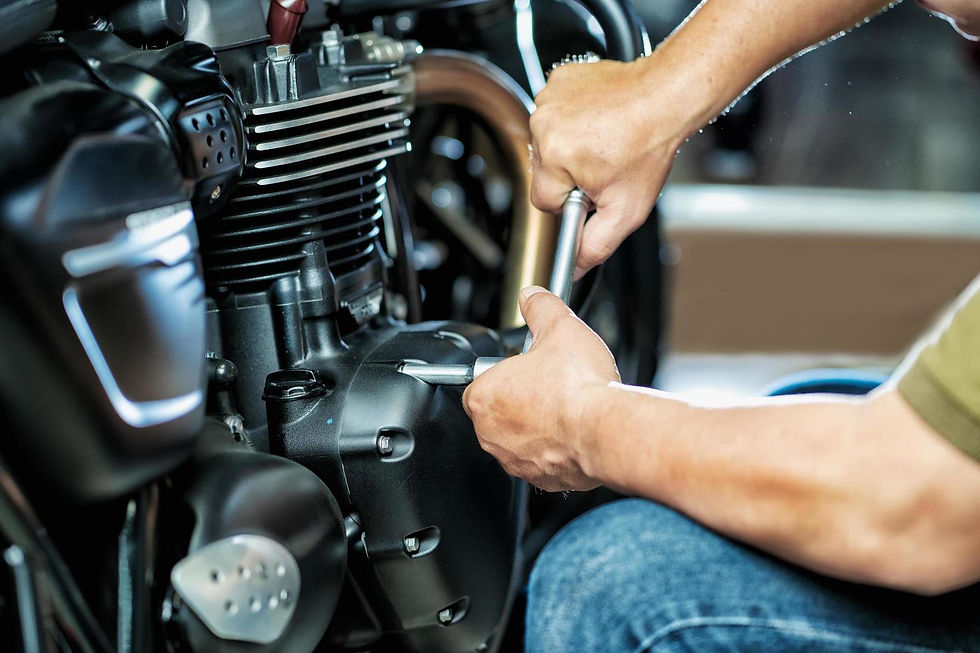This Website is only for INFORMATION purpose
What is Two Wheeler Insurance?
Insurance helps reduce stress by handling unexpected financial burdens related to your two-wheeler. It ensures you ride with confidence knowing you're protected against various risks.
Types of Coverage in Two Wheeler Insurance

Third Party
As per the Motor Vehicles Act, 1988, third-party insurance is mandatory for all two-wheelers. Covers damage to another person’s property or injury/death caused by your two-wheeler.
Own Damage
Only covers damage to your own two-wheeler (not third-party). You can choose this if you already have a valid third-party insurance policy.
Comprehensive
Covers third-party damages plus own damages to your two-wheeler due to accidents, theft, fire, floods, riots, etc. Ideal for complete protection.
Why is
Two Wheeler Insurance Important?
01
Two-wheeler insurance is mandatory under the Motor Vehicles Act, 1988. Riding without insurance can lead to fines, penalties, or even legal action.
02
Having insurance means you ride with confidence, knowing you’re protected financially. It reduces stress and ensures you're covered in case of unexpected events.
03
It protects you from financial liabilities if your two-wheeler causes injury, death, or property damage to someone else. This coverage is essential in avoiding unexpected legal and compensation costs.
04
Comprehensive or own-damage insurance covers your two-wheeler against theft, fire, accidents, and natural disasters. This helps reduce out-of-pocket expenses during unforeseen incidents.
Top Benefits of Two Wheeler Insurance
Add-On Covers
You can enhance your base policy with add-ons like zero depreciation, roadside assistance, engine protection, or pillion rider cover. These offer more customized and comprehensive protection.
Cashless Repairs
Many insurers offer cashless garage networks where you can get your two-wheeler repaired without paying upfront. This simplifies the claim and repair process.
Peace of Mind
Insurance gives you confidence and mental relief, knowing that you're protected against unexpected events. It helps you focus on safe riding without financial stress.
Theft Protection
If your two-wheeler is stolen, the insurer compensates you based on the Insured Declared Value (IDV). This prevents a complete financial loss due to theft.
Own Damage Coverage
With comprehensive insurance, damages to your own two-wheeler due to accidents, theft, fire, or natural calamities are covered. This helps reduce your repair or replacement costs.
Third-Party Coverage
It covers legal and financial liabilities if your two-wheeler causes injury, death, or property damage to others. This is especially important during accidents involving pedestrians or other vehicles.
Legal Protection
Two-wheeler insurance ensures you comply with the law under the Motor Vehicles Act, 1988. Riding without it can result in fines, penalties, or legal trouble.
Insurance Do's and Don'ts
Follow these best practices to get the most out of your Vehicle insurance policy.
Do's
Do carry valid insurance documents while riding your bike or scooter.
Do's
Do declare modifications to avoid claim disputes.
Do's
Do renew your policy on time to avoid coverage gaps.
Do's
Do choose comprehensive insurance if your two-wheeler is new or high-value.
Don'ts
Don’t ride without insurance, as it is illegal and risky
Don'ts
Don’t ignore add-ons like personal accident cover or pillion rider cover.
Don'ts
Don’t skip reading policy terms, especially about own damage and NCB.
Don'ts
Don’t delay inspection if your vehicle is damaged; report it promptly.
Common Mistakes to Avoid
No Insurance
Riding a two-wheeler without valid insurance is a legal offense and can result in penalties or total loss in case of an accident.
Undeclared Modifications
Not reporting modifications like exhaust changes or styling can lead to claim rejection. Always inform the insurer about vehicle updates.
Wrong Coverage
Choosing only third-party insurance may save money upfront but won't cover damage to your own two-wheeler. Consider comprehensive coverage for better protection.

Late Renewal
Missing your policy renewal date can cause coverage gaps and make you lose valuable benefits like the No Claim Bonus (NCB).
Skipping Add-ons
Add-ons such as zero depreciation, personal accident cover, and roadside assistance are often ignored but provide enhanced protection.
Ignoring Terms
Not reading the policy document can result in surprises at the time of claim. Be aware of exclusions, claim processes, and coverage limits.
@2025 Vehicle Insurance Info

